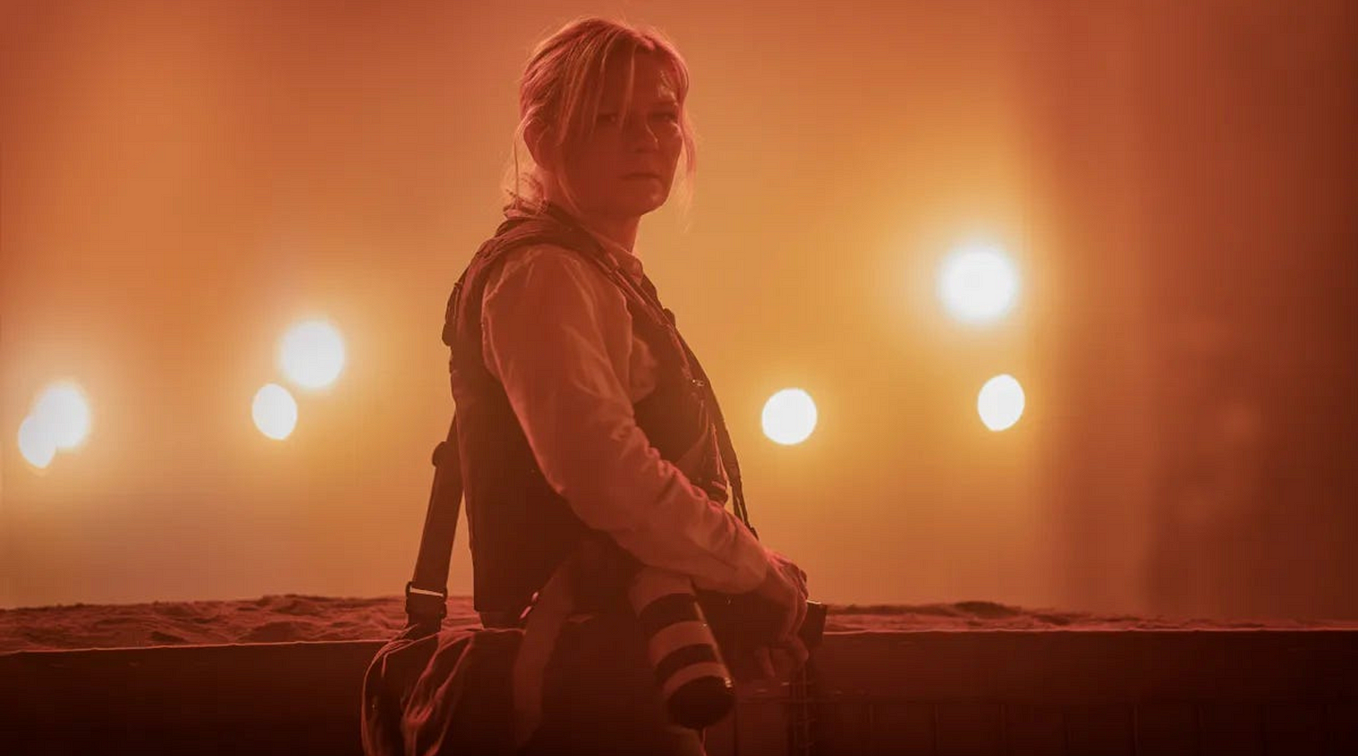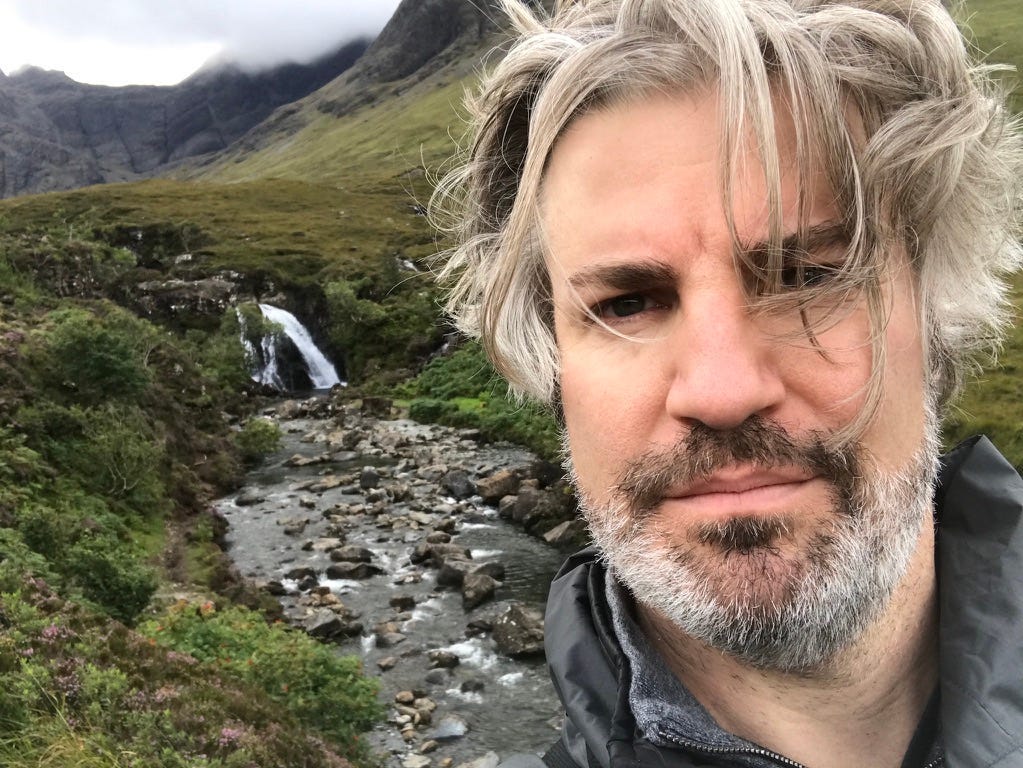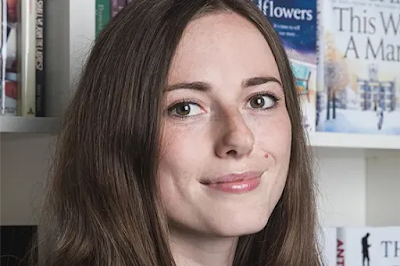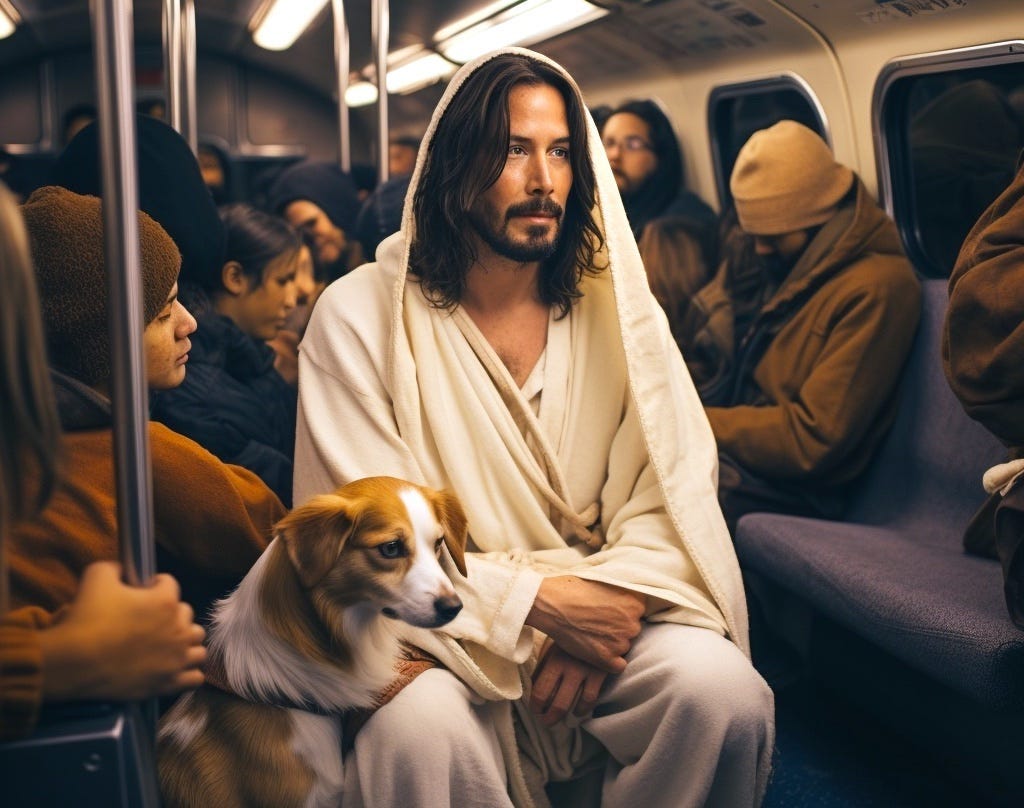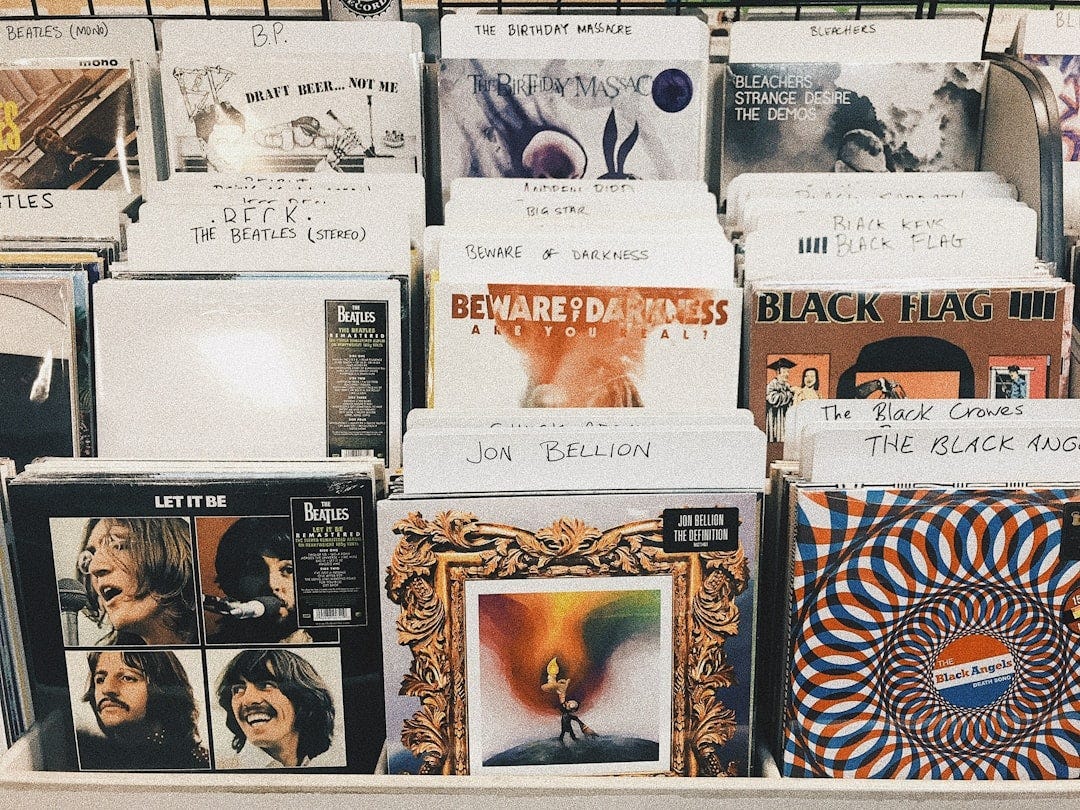Q&A: ‘SPARTACUS’ Creator Steven S. DeKnight on How Genre Shaped His Life
The screenwriter/director, whose work includes ‘BUFFY THE VAMPIRE SLAYER’ and ‘DAREDEVIL’, reveals his secret origin, talks genre storytelling, and breaks down the perils of Hollywood’s IP addiction
The first and only time I met filmmaker Steven S. DeKnight in person, he grabbed me and wrapped his arms around me just before he plunged into a packed screening of a documentary he was featured in. The reason for this embrace was he’d just heard the name of a person I was working with — a person he had…er…strong feelings about. Basically, he knew I needed a hug. The man wasn’t wrong.
Steven and I reconnected earlier this year when I wrote a story about my horrific experiences on a television series called “DRACULA”. Ostensibly, our Zoom was to swap war stories about life in the film/TV business, but, personally, I was more excited to better get to know a screenwriter whose work I had admired for years. More than two decades, in fact, since the guy wrote on “BUFFY THE VAMPIRE SLAYER” and “ANGEL” — two of my favorite TV series of the early aughts and all time.
Steven went on to rack up numerous other impressive credits over the years, both as a writer and director, but maybe none more so than creating and showrunning the wildly successful and popular “SPARTACUS” series. But hey, if we’re keeping track, he also wrote and directed on “SMALLVILLE” and “DOLLHOUSE”, showran Season 1 of “DAREDEVIL”, created and showran “JUPITER’S LEGACY”, and wrote and directed the feature film PACIFIC RIM: UPRISING (2018). In terms of genre, he really has done it all.
During this — my latest artist-on-artist interview — Steven and I discuss the childhood that forged his creative heart, the origins of “SPARTACUS” (and the sequel to come), and what many screenwriters get wrong when they take on genre storytelling — as well as, brace yourselves, a deep dive into everything that’s wrong with Hollywood’s dysfunctional, self-destructive love affair with intellectual property (IP). This was one hell of a fun conversation.
COLE HADDON: Thanks for doing this, my friend. I know you’ve been slammed lately. How was the pilot for the “SPARTACUS” sequel going before the writers’ strike?
STEVEN S. DeKNIGHT: My pleasure! The strike — which, of course, I fully support — pumped the brakes on the “SPARTACUS” spinoff. But before that, things were going incredibly well. I was initially worried about being able to recapture the unique dialogue style of the show, but it truly was like riding a bike. A little wobbly at first, but it all came back to me pretty quickly. It’s such a rare privilege to be asked to return to the world of a show you created that ended a decade ago. My excitement to share what I’ve been working on couldn’t be higher.
CH: I’d love to hear it from the horse’s mouth. How did “SPARTACUS” happen in the first place? You’d largely been playing around in the Whedonverse before it, between “BUFFY”, “ANGEL”, and “DOLLHOUSE”. Almost a decade in writers rooms at that point, directing periodically along the way. Was this leap to creator/showrunner one that came out of nowhere, or had you been trying to make that transition for years by that point?
SSD: The opportunity to create and showrun “SPARTACUS” came largely out of the blue. I was working as a consulting producer on “DOLLHOUSE” for Fox when I got a call from my agent that Sam Raimi and Starz were doing a series about gladiators in Ancient Rome and would I be interested in taking a meeting. Being a huge Sam Raimi fan, I of course, jumped at the chance even though my knowledge of Ancient Rome was mostly limited to what I had seen in movies like BEN-HUR, GLADIATOR, and of course [Stanley] Kubrick’s SPARTACUS.
So, I go into the meeting, but, alas, Sam Raimi wasn’t there. Instead, it was a gaggle of executives from Starz and Sam Raimi’s long-time producing partner Rob Tapert phoning in from New Zealand. Here I learned for the first time that the project was a reimagining of the Spartacus story. Rob Tapert, Sam Raimi, and Sam’s other producing partner Josh Donen had sold the show to Starz as a general “what if we did Spartacus, but shot it in the style of [Zack] Snyder’s 300?” concept.
CH: God, I miss the days when shows were sold with nothing more than a sentence like that.
SSD: Right? Just a short, snazzy idea and off you go! Nowadays, they want a pitch deck, actors attached, and the entire multiple year run of the show all laid out in excruciating detail. If you could pre-shoot the whole thing before they actually gave you the greenlight, I’m sure they’d love that even more.
CH: What happened next?
SSD: What they needed now was a writer to come in and really shape the story. The meeting went very well and, at the end of it, the Starz execs asked me how soon I could start. I was gearing up to direct the second episode of “DOLLHOUSE”, so I told them not for at least six to eight weeks. They were on a deadline to get “SPARTACUS” on the air, so they, unfortunately, told me they’d have to look for someone else.
And that’s how I almost missed the opportunity of a lifetime.
Fortunately, I was on set directing my episode of “DOLLHOUSE’ when my agents popped up and informed me that Starz hadn’t found anyone else that they were confident could helm “SPARTACUS”, and was I still interested. Hell yeah, I was! I finished my director’s cut on “DOLLHOUSE” on a Friday and started work on “SPARTACUS” that Monday.
CH: Hopefully with some champagne over the weekend!
SSD: I wish! Because of my tragic lack of knowledge regarding Ancient Rome, I had to hit the ground running and keep pumping my little legs as fast as possible.
CH: I’d like to dig deeper into your relationship to genre and world-building given how much of your writing career has involved both. Was this a passion you developed as a kid, or did it come later in life?
SSD: I’ve always loved genre. Some of my earliest childhood memories from the seventies are of watching old genre movies on TV, like the stop motion magic of Willis O’Brien’s KING KONG, the giant ants of THEM!, and the spectacular vision of FORBIDDEN PLANET. I got none of the subtext at that age, but I was hooked on the fantastical worlds unfolding before my young little eyes.
CH: I still remember sitting in my parents’ bedroom, maybe five years old, utterly enraptured by KING KONG. My mother was hosting an Avon party in the living room, and I’d been banished to watch this tiny little B&W TV. KONG has never been as magical to me without rabbit ears to wrestle with to keep him from bouncing up and down on that screen.
SSD: Ah, the joy and infinite pain of the rabbit ears! Trying to wizard up that perfect angle to adjust the antenna so you could actually watch your damn TV. Back then, of course, we only had three network channels — ABC, CBS, NBC — along with a few local stations. When I was a kid — I was born in 1965 — we didn’t have cable television yet, let alone video cassette recorders. You had to plan to be in front of your TV right when they broadcast the movie or show you wanted to watch. If you forgot, you were out of luck and had to wait until they aired it again, if ever.
CH: “The kids today”, as we say, can’t even imagine what it used to be like to be a kid who truly loved TV series.
SSD: I remember back in the seventies when “THE SIX MILLION DOLLAR MAN” was hugely popular, they had a two-part episode where Steve Austin battled Big Foot.
CH: I remember it well.
SSD: I was eleven at the time and absolutely enthralled by part one. When part two rolled around the week after, I was faced with a gut-wrenching dilemma for an eleven-year-old: finish watching how Steve Austin would get out of his Big Foot jam, or watch a movie called COLOSSUS: THE FORBIN PROJECT. COLOSSUS was about a supercomputer that takes over the world and sounded so cool.
Side note: This is a wonderful forgotten gem written by James Bridges adapting from the book by Dennis Feltham Jones, directed by Joseph Sargent back in 1970. Seek it out if you haven’t seen it!
CH: I presume you didn’t find a way to bend time and watch both.
SSN: My love for the Bionic Man won out, so I could only watch the first half of COLOSSUS, then had to switch over. It was an astounding five years before I spotted COLOSSUS on the TV again.
CH: Ah, the agony!
SSN: But I digress. If I had to choose one genre movie that really ignited my imagination back then as a kid, I would fail miserably because there are so damn many. The original KING KONG, which made me want to become a stop-motion artist, MIGHTY JOE YOUNG, INVASION OF THE SAUCER MEN, JASON AND THE ARGONAUTS (and anything Ray Harryhausen touched), THEM!, THE AMAZING COLOSSAL MAN, THE INCREDIBLE SHRINKING MAN, all the classic Universal horror movies — the list goes on and on. I saw just about all of these via a Saturday afternoon show called Dr. Shock, beamed in from WPHL-TV Channel 17 in Philadelphia.
CH: You’re killing me with these references. I remember Dr. Shock very fondly. Tell everyone reading who he was, in the likely event they didn’t grow up with him on their screens.
SSN: Dr. Shock, whose real name was Joseph Zawislak, was a magician who dressed up kind of like Dracula and would do corny but endearing intros to a double feature of horror or sci-fi movies. It was like he was beaming that stuff straight into my young, impressionable brain, and I can never thank him enough. His show and the movies he presented really helped shape who I was to become as a writer and director many years later.
CH: Did you make sense to your parents as a kid or even now?
SSD: I was extremely fortunate that my parents were not what you would call a traditional, conservative family, so there was never any issue with them understanding why I was so into horror and science fiction as a kid. My dad was pretty much an ex-hippie/biker who only marginally grew out of that, and my mom wasn’t far behind. They both worked at the local glass factory, so our home was very blue-collar, but they both loved the movies and would take me and my brother to the drive-in all the time. And being free spirits, they took us to see everything. It didn’t matter what the rating was.
SSD (cont’d): Pretty much since before I could talk, they were exposing me to R-rated kung fu movies, horror, sci-fi — anything and everything. I remember being very confused as a seven-year-old confronted with Ralph Bashki’s scandalously sexual animated feature FRITZ THE CAT on the big screen. But my parents didn’t care, and I love them for that. They didn’t want to censure any kind of art, and I doubt I would be who I am if they had. They both, unfortunately, passed away before I got my first break in Hollywood, but I think they both would have been delighted with the kind of projects I’ve been involved in.
CH: I’m sorry to hear that, my friend. My parents are gone, too, though I’m grateful they got to witness some of my success.
CH (cont’d): Getting back to genre storytelling…it’s obviously taken over Hollywood, which only manages to highlight the fact that not every screenwriter knows how to write emotionally truthful stories in the space. What do you think less-experienced writers and even producers don’t necessarily understand about how to do it well?
SSD: The thing about genre storytelling is that there is an inherent trap to be swept away by the Grand Idea and lose sight of the emotional core of your story. If you don’t focus on your characters and their emotional trials and tribulations, no amount of VFX wizardry is going to engage the audience. This emotional core approach is one of the many things that make James Cameron such a phenomenal writer/director in the genre space.
CH: Can you expand on that?
SSD: Take THE ABYSS, for example. On its surface, it’s about the crew of a deep-sea rig that makes first contact with extraterrestrial life. But the emotional core is about a divorced husband and wife finding their way back to each other. That’s ultimately what makes the movie work. And that’s what writers and producers always need to keep their eyes firmly fixed on. Everything else — the VFX, the action, the spectacle — is ultimately meaningless unless the audience cares about the characters who are dropped into an extraordinary genre situation.
CH: If I may make an observation about your work through the lens of the first season of “DAREDEVIL”, that philosophy is clearly on display in every episode. It’s primarily a drama series, only occasionally punctuated by violence. I think that’s why the lengthier fight sequences stand out so much, beyond their technical achievement. They’re an exception to the rule…the rule being characters you care about trying to navigate the drama of their daily lives.
SSD: “DAREDEVIL” was such a rare, wonderful gift to me as a writer/director/producer. A huge amount of the credit goes to the amazing Drew Goddard, who I first became friends with when he joined the “BUFFY THE VAMPIRE SLAYER” writing team. We later wrote several scripts together when we both found ourselves on the spinoff series “ANGEL”. Drew had originally developed “DAREDEVIL” for Marvel Television under Jeph Loeb for Netflix. He had written the first two episodes and roughly laid out the rest of the season when he suddenly had to leave due to a prior commitment to Sony to write and direct THE SINISTER SIX Spider-man movie. That, unfortunately, was later scrapped when Marvel and Sony came to an agreement to share the rights to Spider-man, but at the time Goddard and Loeb were in a bit of a bind. They had a hard start date for production and needed someone to come in and take over the show. I was at the tail end of an overall deal at Starz, the home of “SPARTACUS”, and had just set up a small eight-million-dollar thriller with Mary Parent at Paramount that was supposed to be my feature directorial debut.
CH: I think I remember you telling me about this low-budget pic before.
SSD: Goddard and Loeb approached me, and at first, I was reluctant since I was busy and “DAREDEVIL has historically not fared well in being adapted into the movies and TV. But I really loved the vision for the show, which was a much grittier, grounded, street-level take on the superhero genre. Mary Parent and I agreed to postpone my feature — which unfortunately never ended up getting made — and I dove in on “DAREDEVIL”.
CH: What was that working experience like?
SSD: It was perhaps the hardest show I had ever worked on. By the time I came in, I think we were about four months or so out from shooting. We only had the first two scripts of a thirteen-episode season completed, along with a rough draft of the third ep. We knew we were shooting in New York City, but hadn’t hired any of the key crew yet, like the DP, stunt coordinator, production designer, pilot director, etcetera. We had to hit the ground running, and it was a full-on one-year sprint to get the job done on time and on budget. But I also think that eliminated the opportunity to second-guess ourselves. And that budget was tight! Which, in retrospect, was also a blessing. Since we couldn’t afford a lot of extraneous eye candy, it really forced us to focus on the characters and situations rather huge action sequences. And that’s where I think the show really shines.
CH: I couldn’t agree more.
SSD: We had thirteen episodes — an unheard-of number now in the streaming age where you typically only get eight or, if you’re lucky, ten. This gave us the ability to really dig deep into the characters with episodes like “Shadows in the Glass”, which explores Fisk’s backstory, or “Nelson v. Murdock”, where we explored how Matt and Foggy became such good friends in the past. That kind of character work makes the audience actually care about the people they’re watching, which in turn gets them emotionally invested in the action scenes. Without that connection, all the stunts and CGI and whatnot end up being just a bunch of noisy spectacle.
CH: I’m thinking of the first, really iconic action sequence in the series now.
SSD: Yeah, the hallway fight in Episode 2, Season 1 — “Cut Man” — is a great example. By itself, it’s a really fantastic, inventive fight shot in one long take. Charlie Cox [Matt Murdock/Daredevil], our stunt coordinator Phil Silvera, Charlie’s stunt double Chris Brewster, the director Phil Abraham, and the entire crew really threw their collective backs into figuring out how to make the whole thing work — and it massively helped create a buzz around the show. But all of their incredibly hard work needed the right setup for it to land. We needed to spend an entire episode leading up to that fight so we understood where Matt Murdock’s emotional drive was coming from. We needed to know about his relationship with his father, how devastated he was as a kid when his father died, and how he would do anything to save that kidnapped boy locked in a room at the end of the hallway and reunite him with his own father. That backstory, coupled with how injured Matt is at the beginning of the episode, drives home that he’s just a man — but one that absolutely will not stop, even if it kills him.
CH: As much as I’ve enjoyed this conversation — especially the glimpse at your childhood, which made me ache with nostalgia for my own — all good things must come to an end. I wanted to ask you one final question, and it regards the state of the industry or, rather, its impact on screenwriters. You’ve been doing this for nearly twenty-five years, inspired by a childhood jam-packed with original screen stories. You’ve worked on original series, creating some of them. You’ve worked on intellectual properties (IP), developing some of them into series yourself and directing one of them for the big screen. But the pendulum has clearly swung in the direction of IP, sometimes regardless of how insignificant the IP’s fanbase actually is or if it even has any relevance to the 21st century. Studios and streamers ache for it like addicts looking for their next fix. I hope this isn’t too existential, but what impact do you think this has on your creative soul and on the aspirations and imaginations of writers in general? What do all these concessions we have to make, just to work professionally, have on us, American cinema and TV, or even our craft?
SSD: Whew! Ending on a big existential question. Love it! Okay, let’s roll up our collective sleeves and dive in.
CH: Hit me.
SSD: First, let’s examine the studios’ addiction to IP. I believe it all boils down to two basic elements: risk management and greed. Let’s kick the tires on risk management first. Studios are notoriously adverse to taking chances. In my experience, if there’s an existing piece of intellectual property — no matter how obscure — they’ll latch onto it as proof positive that the idea actually works in some form already. Somebody made it and other somebodies out there bought it. It’s not such a leap to say, okay, so now let’s translate that into a movie or TV show and do it even better and get more somebodies to buy/watch it! It’s much safer, in their minds, than making a bet on an original idea — God forbid — some kooky writer or half-baked director whipped up in the shower.
A necessary side note here: There are many, many wonderful studio execs who would kill to bet the farm on original ideas, both big and small.
CH: Absolutely.
SSD: They love working with writers and directors and probably dream of being able to herald in the next generation’s STAR WARS or TERMINATOR. Or just a fantastic little one-off personal film. But the higher-ups, the corporate head honchos calling the shots from their private jets and yachts, they want the sure thing. They want to manage the risk so that sweet, sweet cash keeps rolling on in. Which leads us, of course, to greed.
SSD (cont’d): Most studios these days mine their own existing IP to produce since, hey, already own it, and it was already a success at one point, so the risk is much lower. That’s how you get reboot after reboot and endless sequels with increasingly diminishing returns. The negative impact of this on writers can’t be understated. To start with, there’s now this public perception that writers have run out of ideas. Which is, of course, complete bullshit.
CH: Such bullshit.
SSD: Every writer I know has a script or a pitch for a wildly entertaining or deeply emotional original story burning a hole through their desk. But it’s nearly impossible to get a studio interested in it unless you’re already a titan in the business — and it’s an uphill battle even for them.
Next, it can just dry up your creative juices when the only opportunities you have are adapting existing IP or rebooting a studio’s old chestnut that’s been collecting mold up in the cupboard. It makes you want to stop coming up with original ideas because ultimately what’s the point if nobody’s buying them?
CH: I feel this every day, actually.
SSD: But not all is lost. It feels like we’re in the same cycle as previous generations of filmmakers before us, particularly that brash, tectonic-shifting crush of mad geniuses that broke out in the seventies in the wake of the studios collapsing under the weight of big-budget, dated spectacles that the audience stop showing up for. Déjà vu, right? Out of that calamity came visionary writers like Robert Towne, Paul Schrader, Sylvester Stallone (hey, Rocky was a fantastic script) and writer-directors like George Lucas, John Carpenter, Brian De Palma, John Milius, and more.
Then, eventually, the studios reasserted their power and the jingoistic eighties saw the rise of the producer as the most important creative element. We got a bit of reprieve in the nineties with the explosion of indie filmmaking which was greatly aided by the video store boom. You could take a risk on a movie, have it tank at the box office, but still make a profit on home video. Then, home video got slaughtered by streaming and now here we are in the age of just about every studio release being a huge, bloated, $200 to $300 million extravaganzas based on IP or an existing franchise. Risk management and greed has led them to bet the farm on one big movie instead of five smaller ones. And at that price point, you have to hit a grand slam every time you step up to the plate or your baby’s considered an ugly failure. It’s absolutely unsustainable.
Unfortunately, I don’t anticipate the studios veering sharply away from this cliff they keep dashing towards regarding IP, so I personally have found a way to embrace it that leaves at least a part of my creative soul intact.
CH: How so?
SSD: I’ve always loved comics and graphic novels, so I’ve branched out into that field as a way of creating my own IP. My first graphic novel comes out next year, and my hope is to be able to set it up as a feature that I’ll adapt and direct. It’s an extra, extremely time-consuming step, having taken nearly three years from start to finish, but it’ll give the project a much better chance to find a home in the current climate.
I’m also toying around with whipping up some short stories, which have inexplicably become the IP du jour these days. I’m lucky enough to have the resources and support to go down this path, but, for most writers, it’s a day-to-struggle just to survive, let alone add an attentional mountain of work that may or may not pay off years down the line. But I don’t want to end on a sour note here. The business has always been tough. The challenges we as writers face today with streaming and mega-mergers and tax write-off shenanigans are just the latest grab bag of corporate fuckery.
In our darkest hour, we have to remember that we are the maker of dreams. And those dreams will fight and claw their way into the world, one way or another.
You can find Steven S. DeKnight on Twitter.
If you want to hear more from me about storytelling and the arts and, on occasion, my musings about life, subscribe for free to me here at Medium or, to receive my free arts-centric Substack newsletter, subscribe to 5AM STORYTALK.

